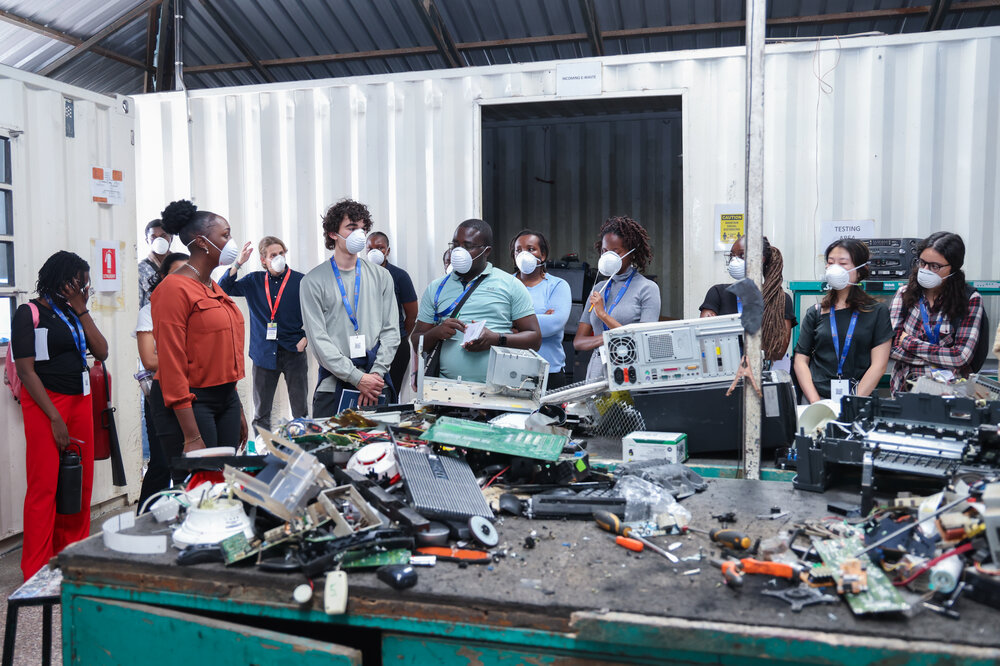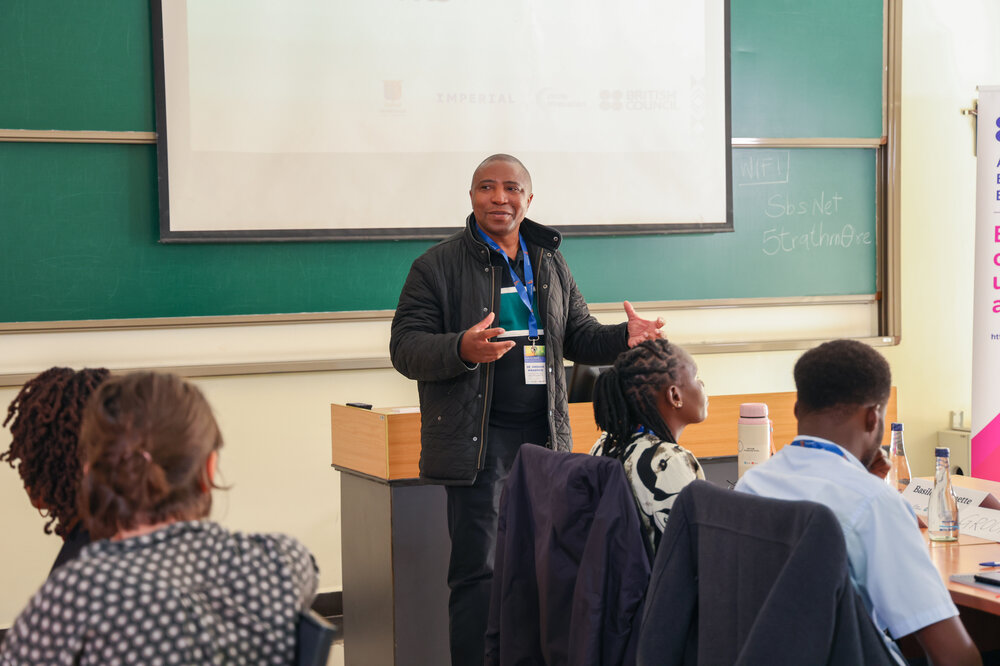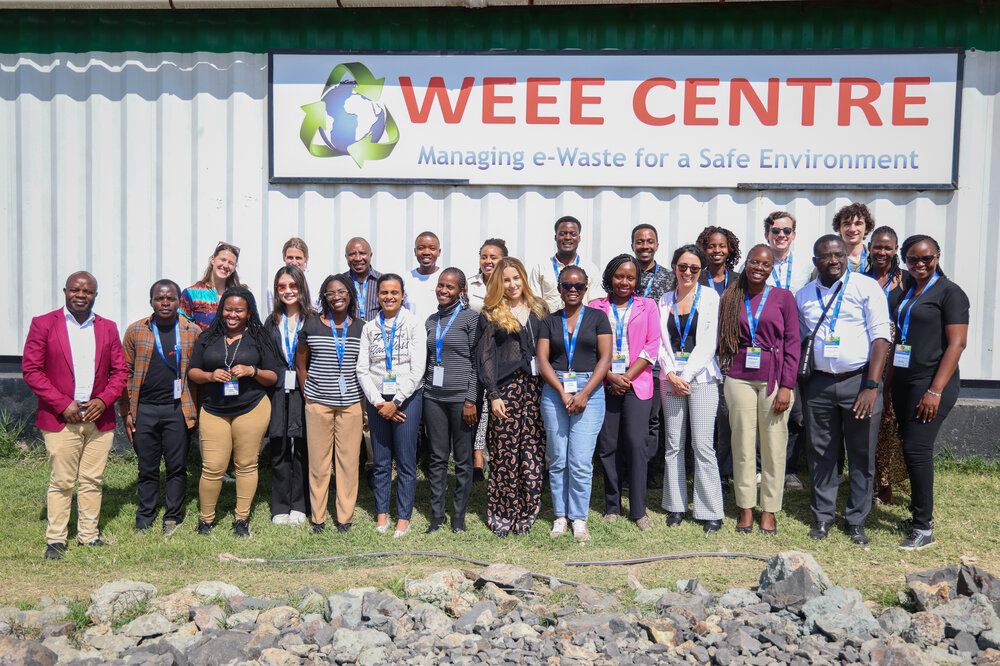From 8-15 June 2024, the Centre for Environmental Policy at Imperial College London organised a Learning and Design Lab in Nairobi, Kenya, involving 8 students from Imperial and 12 from Strathmore University. The five-day co-creation lab aimed to develop specific design solutions for an e-waste management challenge posed by the WEEE Centre, a social enterprise specialising in sustainable e-waste management in Africa.

The challenge focused on digitising and automating the e-waste management process across WEEE Centre’s supply chain in Kenya, which currently relies on manual processes that hinder data tracking. Additionally, the students explored how digital data could be used to establish a credit score system for waste pickers, enabling them to access credit facilities. Industry partners collaborated closely with student teams throughout the lab to ensure the feasibility and adoption of the proposed solutions within WEEE Centre.
During the lab, students visited WEEE Centre facilities in Nairobi to gain firsthand insights into the operational challenges. They received support from facilitators and experts who provided theoretical guidance on methodologies, approaches, and tools, as well as practical assistance during the design and development phases. At the conclusion of the lab, the students presented their solutions to WEEE Centre, who expressed enthusiasm about implementing some of the proposed ideas to enhance their e-waste management processes.
Beyond academic and professional objectives, the lab fostered cultural exchange between Imperial students and their counterparts from Kenya. The initiative received funding from the British Council under the Going Global Partnerships and Imperial Global Development Hub.
The Imperial students were accompanied by academic and research staff Professor Jeremy Woods and Dr Onesmus Mwabonje. The Imperial College International Office team included Michael Reilly and Francesca Skillicorn.

These four staff members also visited the University of Nairobi’s Faculty of Agriculture at the Upper Kabete campus, where they met with Professor Moses Nyangito, the Dean of the Faculty of Agriculture, and Professor John Irungu Mburu, an Associate Professor in the Department of Agricultural Economics. Additionally, the team met with Dr Henry Nyalanga, representing Professor Jonathan Makau Nzuma, Chairman of the Department of Agricultural Economics, at the Chairman’s office. The discussions focused on potential teaching and research collaborations between the two esteemed institutions of higher learning.
Additionally, the Imperial team visited the Kantaria Agricultural Technology and Innovation Centre (KATIC) site, also located at University of Nairobi’s Upper Kabete campus. Here, they engaged in discussions with Dr Kevit Desai and Professor John Kimenju about how Imperial could contribute to enhancing KATIC’s core activities. KATIC, a collaboration between the University of Nairobi and Elgon Kenya, aims to bridge the gap between industry, academia (research and innovation), and farming communities.

The Centre’s primary objective is to promote innovation, mentorship, and the commercialisation of agricultural technologies and ideas, thereby accelerating their adoption across agricultural value chains in Kenya and beyond. The construction of the KATIC complex is scheduled for completion this year.
Furthermore, the team visited UNEP at Gigiri, where they met with Dr Cecilia Lopez y Royo, Head of the Policy Coordination Unit and an Imperial alumna herself. They also had discussions with Pierre Boileau, Head of the Global Assessment Unit, regarding their work on the Global Environment Outlook (GEO7) and how the 2050 calculator approach could support stakeholder engagement activities.
The 2050 Calculator is a uniquely open and transparent energy model that can be used by governments and the public to understand how to decarbonise a region or country, and to develop evidence-based policies. It was originally developed for use in the UK but is now being used in over 60 countries. Imperial has been a global leader in the development of these tools.
The culmination of the visit was the hosting of the Imperial Kenya Alumni social event at Fairview Hotel Nairobi. The event was well-attended by former and current students, providing an opportunity for Professor Woods and Dr Mwabonje, as hosts, to share updates on their recent and ongoing research activities in Kenya.